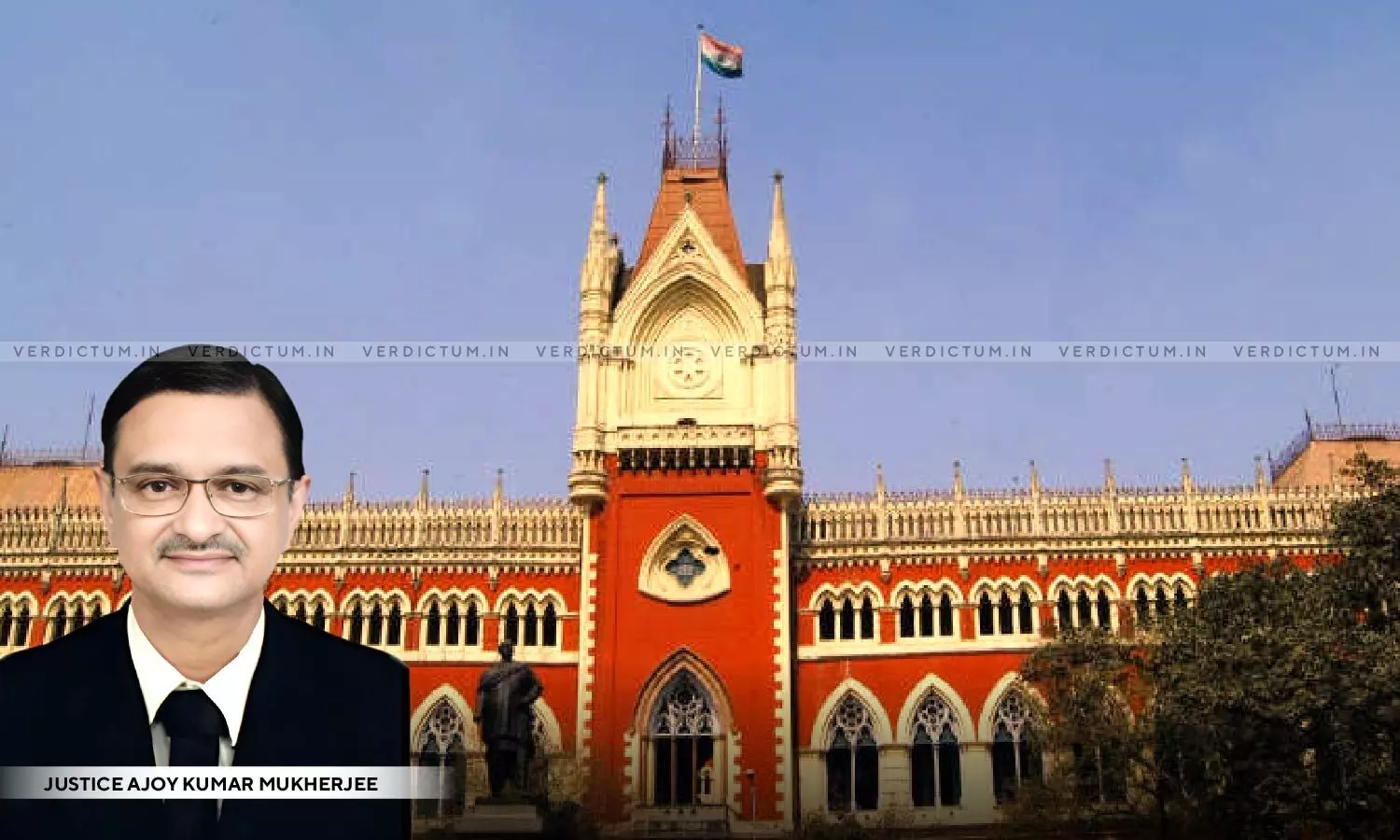
Civil Courts Have Developed Tendency Of Taking Short-Cut Method Granting Status Quo Without Determining Status Of Parties: Calcutta HC
 |
|The Calcutta High Court while deciding a case has said that the civil courts have developed a tendency of taking a short-cut method of granting the status quo without determining the status of the parties.
A Single Bench of Justice Ajoy Kumar Mukherjee observed, “In fact on various occasions it is found that the civil courts have developed a tendency of taking a short cut method of granting status quo without determining the status of the parties. While ordering Status-Quo, court must state in unequivocal term what Status-Quo is. He must state as to whether the Plaintiff or defendant is in possession. Leaving the matter in doubt and ambiguity will result in dangerous consequences and such order is also not proper. Such practice of judicial officers presiding in the civil courts has been deprecated in various judgment passed by this court and also the Supreme Court.”
The Bench said that when the court thinks that an order of status quo in respect of the possession is required to be passed, it must record a finding as to who is in possession of the property.
Advocates Sabyasachi Chaudhury and Rajarshi Dutta represented the petitioner while Advocates Prabal Mukherjee, Malay Dhar, and Biswajit Sarkar represented the opposite parties.
In this case, an order passed by the Additional District Judge was challenged by the petitioner named M/s Messerger Courier & Cargo Pvt. Ltd. The opposite party UMA Forzing Works (P) Ltd. earlier filed a suit for declaration and permanent injunction praying for a declaration that the company was an irrevocable licensee in respect of the suit property and also for a declaration that it was the absolute owner of the entire factory shade together with plant and machinery installed therein, lying and situated in the suit property and also for an injunction.
In the said suit the opposite party/company filed an application under Order XXXIX Rule 1 and 2 read with Section 151 of the Code with a prayer to restrain the petitioner and its men and agents from interfering with the peaceful possession and smooth egress and ingress of the men, employees, and directors of the company in respect of the suit property. The petitioner, therefore, filed a written objection against the said prayer for injunction and also filed a written statement in the suit.
The High Court in view of the facts and circumstances of the case noted, “If the court is convinced regarding prima facie possession of the plaintiffs, the status quo regarding possession of the suit property should continue till disposal of the suit. But a finding to that effect ought to have been recorded. For the said purpose the court ought to examine the affidavit and the documents judiciously. If from the available documents the court cannot prima facie decide as to who is in possession, he ought to examine the issue judiciously and decide in its discretion what order should have been passed to serve the interest of justice best at the interlocutory stage.”
The Court further noted that in the absence of the plaintiff’s prima facie case in respect of possession, the prayer for an injunction should be refused.
“If status-quo of the nature and character of the suit properly has to be preserved till disposal of suit, then also before passing order of status quo in respect of nature and character of the properly, the conditions thereof obtaining on that date must be indicated and for which a local inspection commission in respect of suit property might have become necessary. But passing an order of status quo without indicating the status, is a short cut procedure sometimes adopted by the civil courts to dispose of injunction application, with the mind set let me make the order at the interlocutory stage and if the other side is aggrieved, it will be vacated at the end of trial”, held the Court.
The Court further said that this is not a correct attitude and hence, before making the order, the court must be satisfied that it is a case, which calls for such an order. It observed that such an obligation cannot be avoided by placing the onus upon the affected party to prove in Trial that such order needs to be Vacated or must not continue at the end of Trial.
“Such vague order of status quo without indicating status by the civil courts cannot be encouraged at any cost because such order unnecessarily generate multiplicity of disputes and such vague order of status quo do not render any effective service to the litigants. Such orders instead of advancing the cause of justice are creating problematic situations, where the litigants are filing one petition after another without knowing where to seek justice.”, also said the Court.
The Court, therefore, directed that both parties shall place all their documents before the trial court in support of their contention by way of affidavit and that the trial court shall hear both parties afresh based on the affidavit and documents for determining the status and if thinks fit shall allow prayer for local inspection commission.
“After making such hearing, Trial court will pass an order afresh without being influenced by any observation made herein, preferably within a period of eight weeks from the date of communication of the order”, further directed the Court.
Accordingly, the Court disposed of the plea.
Cause Title- M/s Messerger Courier & Cargo Pvt. Ltd. v. UMA Forzing Works (P) Ltd. & Ors.